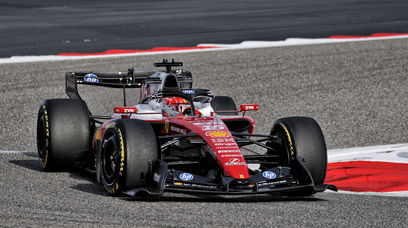The Red Bull RB19 has been one of the most dominant cars in the history of Formula 1, having taken 21 victories out of a possible 22 during the 2023 season. Their pace advantage in the races was so far superior of their rivals that it did not matter where they started in a Grand Prix, with Max Verstappen starting in 15th in the Saudi Arabian GP and still managing to win ahead of Sergio Perez. At the hands of Verstappen it managed to break win records that were previously held by McLaren in 1988 with the MP4/4, which took 15 wins out of 16 during that year which gave them a win percentage of 94%. By contrast the RB19 has a win percentage of 95%, having also achieved 30 podiums out of a possible 42 between Verstappen and Sergio Perez.
Newey: Our guys wanted to fight the regulation change
Designer Adrian Newey has previously admitted that he was "surprised" that Red Bull managed to achieve the levels of success they did in 2023, even by his standards. Much of their improved performance came from a key regulation change in 2023, which was introduced to prevent the amount of porpoising experienced by the cars in 2022 when the switch to ground effects happened. A 15mm increase in the rear floor and 10mm diffuser height was mandated, which posed a challenge for teams as they looked to retain aerodynamic performance in the high speed corners. "The interesting thing about that was when the change was announced last year we were discussing it internally. Some of our guys were saying, ‘no, we’ve got to really fight this’," Newey told The Race . "But I took the view that, actually, in the high-speed corners last year we were probably behind Ferrari. Our car was getting itself into problems in the very high speed so actually that reg change might suit us so we didn’t really push against it too much. "It turned out it seems it has suited us.”
Design decision caused qualifying problems
Although the RB19 achieved 14 poles in 2023, it was not always the easiest in qualifying for Verstappen and Perez. The pair faced their fare share of problems which often put them further back on the grid than anticipated, but Newey says this is partially due to a design decision made early on. "That’s just the way we’ve developed the car. We’ve tried to prioritise race performance more than qualifying," said Newey. "We made that decision back in ’21 when we were designing the car, to try to prioritise the race performance over one-lap performance. "It was a deliberate choice and we felt that if the overtaking was going to become easier then that presumably meant qualifying performance would be slightly lower priority than in the past and it seems to have worked out.”
Most read







